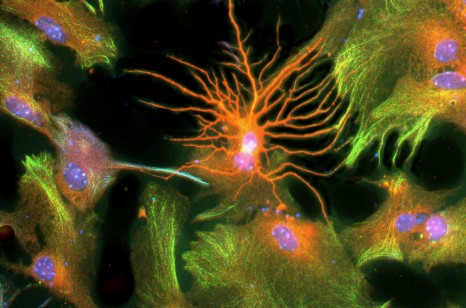The i-Share (Internet-based Students HeAlth Research Enterprise) study, the only one of its type in the world, intends to monitor the state of health of 30 000 students over a period of 10 years. It will provide precious information on the state of health of students, to ensure better management of the health system for this population. This cohort study is being carried out by Inserm, the Université de Versailles Saint-Quentin-en-Yvelines and the Université de Bordeaux. In order to recruit the panel of students required for this study, the universities of Bordeaux and Versailles Saint-Quentin-en-Yvelines are running a recruitment campaign using tools with which these young people are already familiar: websites, mobile applications, social network sites, etc. I-Share will also serve as a platform for biomedical research projects and for testing prevention strategies.
©fotolia
The i-Share study, investing for the future
There are over two million students in France. A population that is exposed to pathologies that could cause serious complications, such as depression and the risk of suicide, or disrupt their daily life and studies, such as migraine. Their behaviour during their student years can have both immediate effects (such as accidents due to binge drinking), and more long-term effects on chronic diseases (cancers, cardiovascular diseases).
The best way to study the health problems of students and find the solutions is to set up and monitor a large-scale cohort study. This is the goal of the i-Share study, which is one of the winning projects in the “Investissements d’avenir” (Investing for the Future) programme. The i-Share study wishes to monitor the state of health of 30 000 young adults over a period of 10 years. Its aim is to explore the risk factors of diseases in this population, for which we currently have very little available information.
The project is targeting four major pathological themes in particular: migraine, mental health, infections, risky behaviour and accidents
By providing accurate data on the frequency and consequences of certain diseases and infections, eating habits, the consumption of medication…
I-Share will help to fill in the missing data on young adults and will provide an overall picture of the state of health and wellbeing of students
The study will also provide the opportunity of testing prevention or medical care strategies to help with public health planning. Finally, this large-scale epidemiological cohort will serve as a platform to study the determinants and the mechanisms of diseases, through collaboration with other fields of biomedical research.
Efficient recruitment needs the use of student-friendly tools
I-share.fr, a website giving information about the study
In order to recruit and keep in contact with the 30 000 students, the i-Share.fr site was launched in mid-February 2013. The questionnaire on the i-Share.fr site concerns health, living habits, social and family environment and is the first step in the cohort enrolment process. I-Share.fr also centralizes all data relating to the cohort: type and progress of studies, goals, research themes, etc. The contents will be enriched by articles, photos and videos.
Development on social network sites
Much importance is given to exchanges, expression of feelings and experiences based on the subject of health. The participants will also be asked to attend various events and in general, to communicate on the cohort Twitter or Facebook sites to participate in the community.
Relay students
The relay students will be equipped with tablets and will go around meeting other students and introducing them to the missions of the i-Share cohort and encourage them to take part in this study.
Scientific collaboration
i-Share.fr will also be the space dedicated to publishing the results of the study as it progresses. The description of the data and how to access them by external researchers will help collaboration with i-Share, which is an open study.




